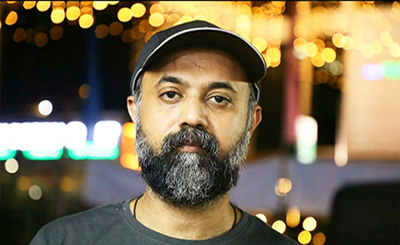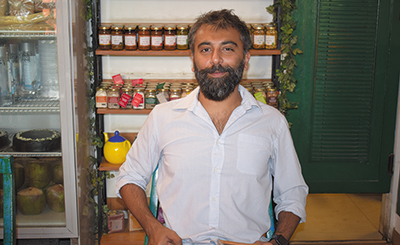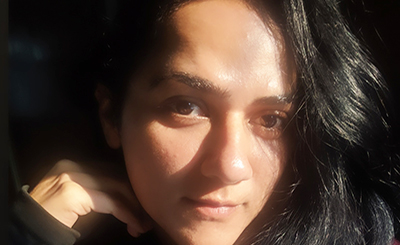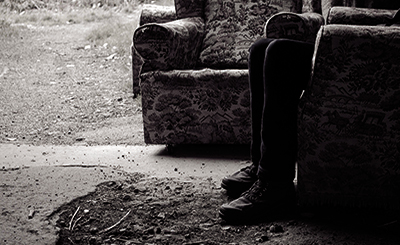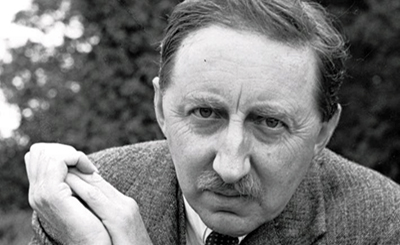
Henri Cartier-Bresson’s iconic 1944 photo in Paris. (Courtesy Magnum/Cartier-Bresson)
While both Fernando Pessoa and Albert Camus looked upon themselves as exiles, a significant difference in their rootlessness lies in the way they dealt with their situation
In The Book of Disquiet (1982), poet and philosopher Fernando Pessoa (1888-1935) describes himself as someone who is an “exile from the country of which he had always considered himself a citizen…” 1 Exile and Pessoa? Is it apposite to associate exile with someone who — apart from spending nine years in South Africa during his youth — essentially never stirred out of his native Portugal?
But then talking of exile and Pessoa in the same breath seems odd only when we use the term within the narrow confines of geographical and political parameters. We could argue instead that there could be other kinds of exile, too. Roberto Bolano (1953-2003) contends, for instance, that “probably the first exiles on record were Adam and Eve. [Hence] Is it possible that all of us are wandering strange lands?” “[Are] ‘strange lands’,” Bolano wonders, “(like…‘home ground’) an objective geographic reality or a mental construct in constant flux?” Moreover, “all literature,” Bolano adds, “carries exile within it, whether the writer has had to pick up and go at the age of 20 or has never left home.”
Nigerian writer Wole Soyinka, winner of the 1986 Nobel Prize in Literature, too, alluded to a similar notion when he cited Ben Okri as “a prime candidate for that whimsical, half-serious definition [of] the temperament of the writer or the artist tribe in general: a creature in a permanent state of exile, since his or her real vocation is the eradication of the barriers of reality…”
What’s more, this state of being an exile is perhaps especially typical of the Portuguese mind, as Eduardo Lourenco, the literary critic from Portugal has argued. Pessoa’s worldview may be a reflection of the “homesickness” that is “distinctly Portuguese… a way of being [that] has to do with everything and nothing — that we Portuguese can have everything, but still feel we have nothing.” It is a mindset which is, Lourenco adds, “a combination of megalomania and humility.” Lourenco compares the sadness and poignancy in some of Pessoa’s poems to — not surprisingly — fado, Portuguese music which has elements of both melancholy and hopefulness.2
Zbigniew Kotowicz, 69, the philosopher and polymath, too felt that “the contradictions that are so much part of [Pessoa’s] project” requires us to understand “the way in which his country’s spiritual, political and artistic past shaped his poetic destiny…” 3 The contradictions Kotowicz referred to are exacerbated by the fact that Pessoa famously employed several imaginary characters for authoring his writings. Pessoa himself asserted that these heteronyms reflected not multiple personalities but no personality at all. While comparing himself to Omar Khayyam (1048-1131), Pessoa observes: “Omar had one personality; I, fortunately or unfortunately, have none. Omar, who is who he is, lives only in one world, which is the external world; I, who am not who I am, live not only in the external world, but in a successive and diverse internal world.” 4
“Pessoa’s work is an enigma, representing a chaotic cosmos,” as Paulo Borges, 59, from the University of Lisbon puts it, “and [consequently] his philosophical interests should not be taken as a promise of systematic consistency.” 5 Hence, virtually anything Pessoa left behind needs to be read with a pinch of salt. But we can still derive some assurance of authenticity from the fact that however distinct in style and content the heteronyms’ writings were, they were nevertheless the product (presumably!) of one mind.
One way to understand the unique nature of Pessoa’s exile — a part undoubtedly of his “project” as Kotowicz called it — is to compare it with that of Albert Camus (1913-1960) who wrote so exquisitely and explicitly about exile and its various kinds. In Camus’s short story collection The Exile and the Kingdom, for instance, as the Italian writer Alba Amoia, 90, points out, exile is examined in its assorted guises, “whether it is geographical or moral in character.” 6 In The Adulterous Wife (from this book), Janine is a wife ignored by her husband and is in search of her roots and her self. The fly that seeks to escape through closed windows (in the very first sentence of the story) symbolises — as Amoia points out — Janine’s condition of exile and her personal quest.
Amoia highlights two other stories also by Camus that describe ordinary people being driven (in The Fall, 1956) by human “depravity and moral nullity” to a “voluntary exoteric exile” or a form of “esoteric exile”, triggered by the plague in the city of Cadiz (in State of Siege). 7
We can identify, from such an evaluation, some common threads between the ideas of Pessoa and Camus — including spiritual alienation, a search for meaning, a disdain for the abstract and how we deal with the feelings and emotions associated with being an exile.
In The Book of Disquiet, Pessoa describes his life as one filled with “emptiness and tedium” and one “in which the only thing that happens is its own consciousness of itself.” It is a life “so alien to human life… [unlike that of a normal person] who feels tiredness not tedium, who suffers rather than merely imagining he suffers….” What he appears concerned with in this fragment from his book is the lack of authenticity that characterises “the exile that is me.”8
But while all exile may include an element of the transcendent, the difference in the nature of Pessoa’s displacement and that of Camus lies in the fact that while the catalyst for the former appears to be primarily non-physical (and not driven by a real geographical dislocation), the latter arose — to a significant extent — from Camus’s status as a “pied noir” in Algeria where he was born and his move to France later. The “return” of the pied noirs — “dirty feet” as the French settlers in Algeria were called9 — to France meant (as Camus’s translator Carol Cosman explains) “an exile from the land of their birth… both rooted and rootless… not just another minority but intimate strangers.”10
Pessoa’s sense of exile is, on the other hand, imbued, too, with an inordinate concern with reason rather than feelings. “I think what creates in me the deep sense I have of living out of step with others is the fact that most people think with their feelings whereas I feel with my thoughts.” The American poet Adam Kirsch, 43, contends that the roots of Pessoa’s misery lie in his “solipsism — the belief that nothing outside the self really matters, so that the mind can never be truly affected by what it experiences.” 12 Kirsch adduces here Pessoa’s view that “Freedom is the possibility of isolation… If you cannot live alone, then you were born a slave.” (But even Pessoa, finally, could not live alone, as Kirsch notes. His imagination came up with countless heteronyms to keep him company).
Pessoa’s loneliness — and his need to countervail it by inventing and living in a world populated by his heteronyms — is linked, I believe, also to his inability to find meaning in life. Pessoa recognises this nexus when he observes, “I am like a playing card that belongs to some ancient and unknown suit, the only remnant of a lost pack. I have no meaning, I do not know my value… I have no purpose by which to know myself.”13
The apparent lack of meaning in life is a central plank also of Camus’s idea of the absurd. For Camus, absurdity in our lives arises from the fact that we are unable to make sense of the world around us. If that world could be explained to a miniscule extent even, we could say we have some mastery over it. But that is not so. “My reasoning wants to be faithful to the evidence that aroused it. That evidence is absurd,” Camus writes in The Myth of Sisyphus. “It is that divorce between the mind that desires and the world that disappoints, my nostalgia for unity, this fragmented universe and the contradiction that binds them together.” 14 Elsewhere we notice a clear nexus between the absurd and a state of exile — whether physical or otherwise — when Camus asserts, “This divorce between man and his life, the actor and his setting, is properly the feeling of absurdity.”15
A recurring theme in Camus’s exposition of his philosophy of the absurd is meaning. In his The Myth of Sisyphus (1942), especially, Camus reiterates how the lack of meaning — combined with finding no value in abstract concepts like religion and ideology — results in our spiritual alienation. Camus is critical of ideas like God and phenomenology which imply a leap of faith in a supernatural entity. Camus views them as “at once… most deeply imbued with the philosophy of the non-significance of the world and one of the most divided in [their] conclusions. [They are] constantly oscillating between extreme rationalisation of reality… and its extreme irrationalisation which tends to deify it…”16 He hence dismisses such ideas as “deceit… and subterfuge.”17 Camus’s disillusionment with the abstract and his “concern… with the dubiety of absolutes and the need to limit one’s search for a truth… to the human realm within reach” is a message clearly delivered, Amoia argues, also in his fictional work.18
Pessoa notes in a similar vein how he was born into a world without any anchors, one “devoid of certainty for anyone possessed of both intellect and a heart… [one that offered] no security… as regards religion, morality… no stability as regards as politics.”19 This “state of anguish, both metaphysical and moral… reduced the gospels and their earlier hierographies… to a collection of hypothetical myths and legends, to mere literature.” 20 This disenchantment with gods and idols is reflected also in Pessoa’s exhortation — included in a “biographical sketch” of Charles Robert Anon (one of his heteronyms) — to “pass sentence of excommunication on all priests and all… religions in the world.”21
But, while both Pessoa and Camus looked upon themselves as exiles, a significant difference in their rootlessness lies in the way they dealt with their situation. In Camus’s case, his feelings of exclusion and disillusion were certainly more visceral and driven by external circumstances. He grew up, firstly, in Algeria in a dysfunctional household with a mother who was deaf, almost mute and illiterate and a tyrannical grandmother.22 Later, despite winning the Nobel Prize in 1957, Camus spent his final years in Paris where he was ostracised by some of his fellow intellectuals while some in Algeria called for his death because of his political views. 23
Hence, while with Camus “exile [was] thrust upon him” (like Daru in his short story The Guest, as Carol Cosman finds)24, we see that with Pessoa it is largely self-made. Pessoa admits that “to mark the boundaries of my being I put up high railings, more daunting than any wall, so that… I can exclude others and keep them other.”25 He derives an “ambivalent pleasure” from having one’s own mental space, islands in a mental geography distinguished from that of others and speculates about being able to create in future a mental space “like the space in which physical things exist…”26 Pessoa would, meanwhile, “pass the time… not like the prisoner weaving straw to distinct himself from his destiny, but like the little girl embroidering pillowcases to entertain herself and nothing more.”27 In contrast, Camus wanted to confront the absurdity in life head on with “revolt, freedom… and … passion. By the mere activity of consciousness, I transform into a rule of life what was an invitation to death…”28
We are hence left to conclude only that it is almost as if Pessoa is trying to work out how not to belong — and make the best of it — in contrast with Camus who suffers from a hankering and nostalgia for a spiritual home.
References:
1. Fernando Pessoa, The Book of Disquiet, trans Margaret Jull Costa (London: Serpent’s Tail, 1991), p. 99.
2. Ibid.
3. Zbigniew Kotowicz, Fernando Pessoa: Voices of a Nomadic Soul (London: The Menard Press, 1996), p. 17.
4. In Philosophical Essays: A Critical Edition/Pessoa, ed Nuno Ribiero (New York: Contra Mundum Press, 2012), pp. xxi-xxii.
5. Ibid, p. 180.
6. Alba Amoia, ‘Albert Camus's "Exile" and "The Kingdom"’, Dalhousie French Studies, vol. 19 (1990), p. 43 at https://www.jstor.org/stable/i40037348.
7. Ibid, p. 45
8. Pessoa, The Book of Disquiet, p. 138-9.
9. In Albert Camus, Exile and the Kingdom, trans Carol Cosman (London: Penguin Books, 1958/2006), p. viii.
10. Ibid, p. ix.
11. Pessoa, The Book of Disquiet, p.148-9.
12. From The Book of Disquiet, quoted by Kirsch.
13. Pessoa, The Book of Disquiet, p. 148-9.
14. Albert Camus, The Myth of Sisyphus, trans Justin O’Brien (London: Penguin Books, 1955), p. 50.
15. Ibid, p. 13.
16. Ibid, p. 50.
17. Ibid.
18. Amoia, ‘Albert Camus's "Exile" and "The Kingdom"’, p. 47.
19. Pessoa, The Book of Disquiet, p.206.
20. Ibid.
21. In Philosophical Essays: A Critical Edition/Pessoa, pp. xxii-xxiii.
22. See https://www.wheelercentre.com/news/d02db60cde0a
23. See above.
24. In Albert Camus, Exile and the Kingdom, p. x.
25. Pessoa, The Book of Disquiet, p. 152.
26. Ibid, p. 171.
27. Ibid, p. 209.
28. Albert Camus, The Myth of Sisyphus, p. 62.
More from The Byword
Comments
*Comments will be moderated




